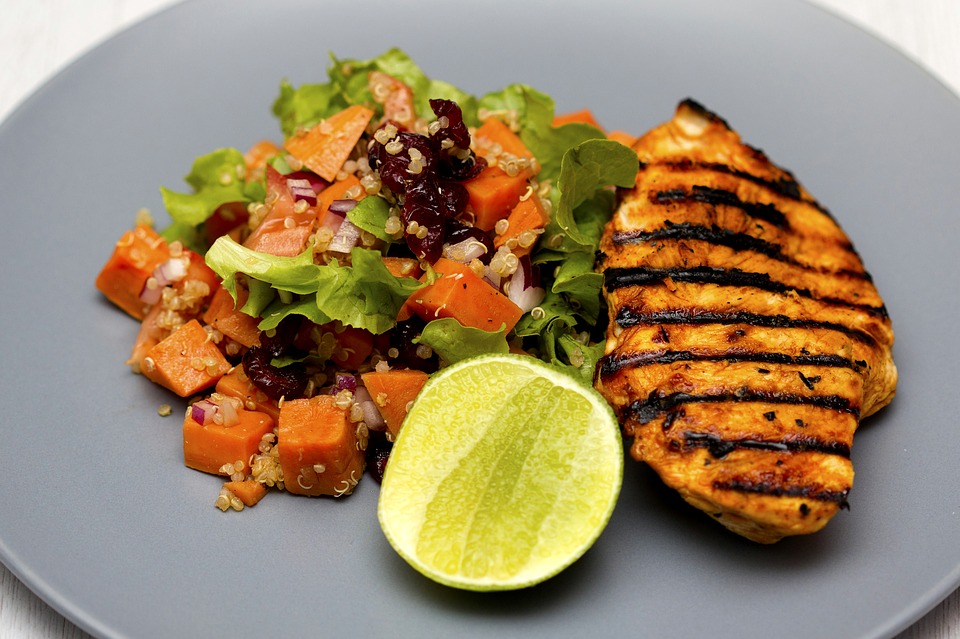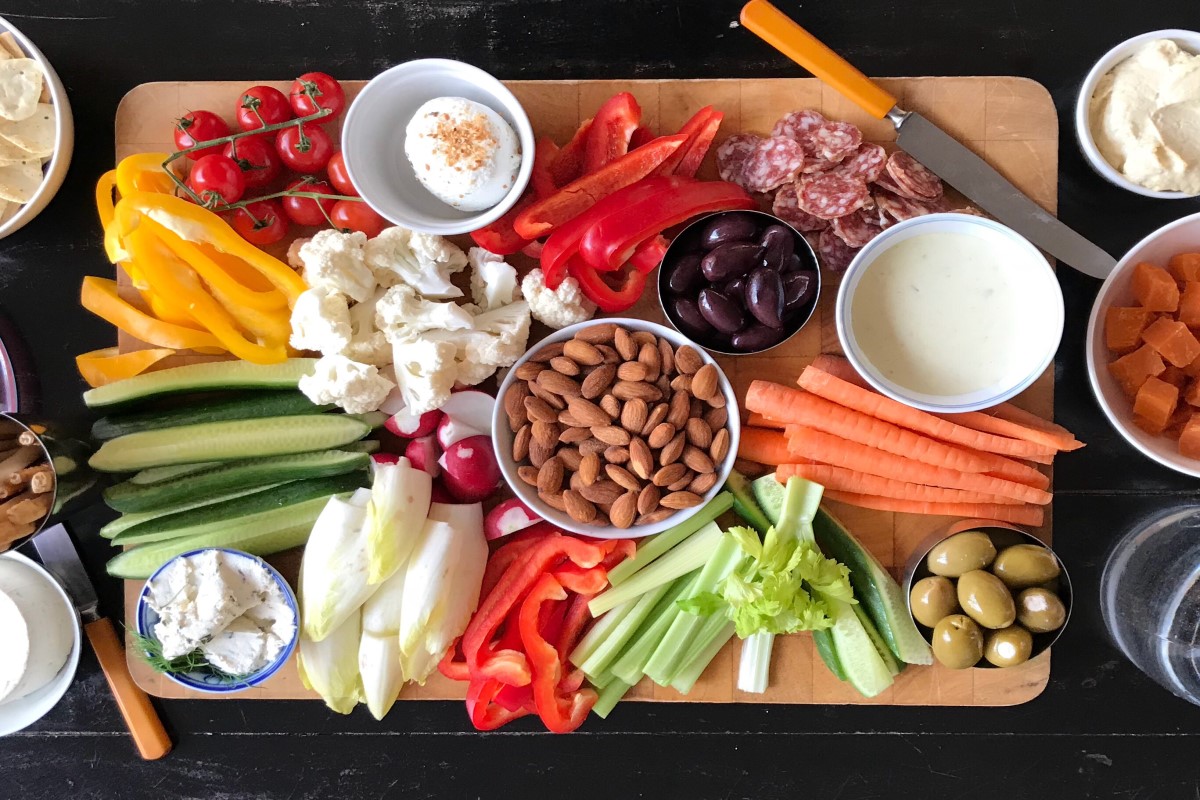
Competitive swimming requires swimmers to be in top shape. A swimmer can build a body that is optimized to perform with the right macro and micronutrients. Eating simple, healthy snacks and meals is key. Always being mindful of nutrients is a key part of this.
Different people require various amounts of calories. This is especially true when it comes to teenage athletes. Active 14-18-year-old girls require 2,400 calories per day. While males need 2,800 to 3,200 each day. Swimmers who practice twice a day need an additional 1,200 calories in their diet.
Eating so much in a day may sound daunting. However, an athlete’s body requires carbohydrates, protein and fat. Competitive swimmers need to take care to maintain necessary levels of vitamins and hydration daily.
Macronutrients:
First, let’s review macronutrients! These are needed to give the body energy, which is important for those competing in sports. It’s also used to preserve body structure and systems. So taking these in is an important part of building and maintaining muscle and body weight.
Complex Carbohydrates
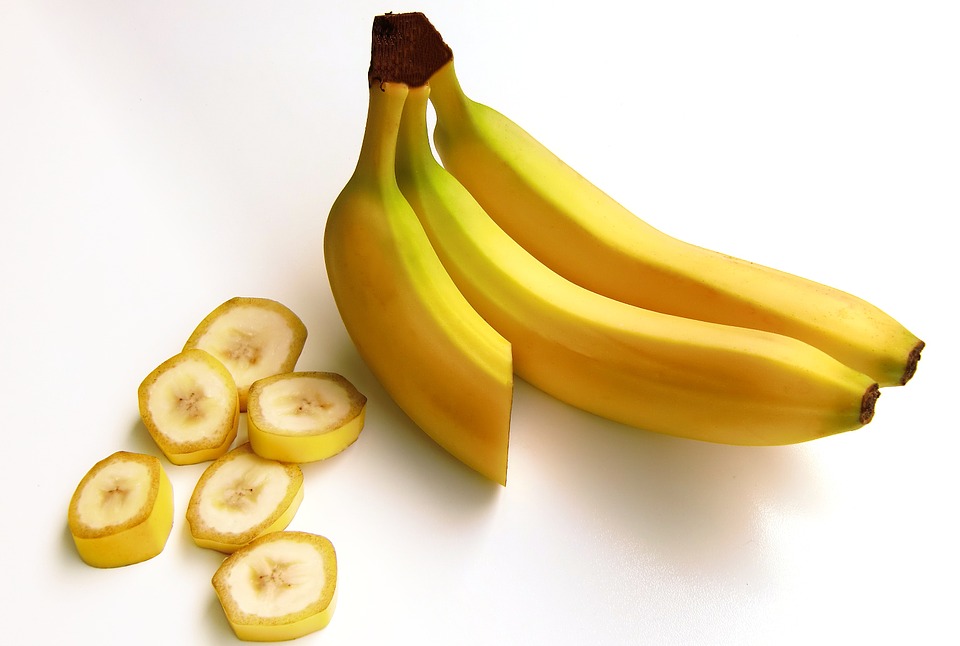
Recommended sources of carbohydrate: squash, bananas, berries, rolled oats, sweet potatoes
The U.S. Department of Agriculture (USDA) recommends 45 to 65 percent of a person’s daily food intake to be carbs. Carbohydrates provide energy to the body, which is lost during workouts and daily activities. Consume some of these an hour or two before swim practice.
Most foods contain carbohydrates, but we should be mindful of how we eat them. Fruits and vegetables make a great team. Eat some fruit before going for a swim, but be mindful that the energy boosts come from its natural sugar content. While veggies are good for energy replenishment. This is because their carbs come from starch and fibre.
Lean Protein
Recommended sources of lean protein: eggs, chicken, beef (hormone-free), salmon, nuts, seeds
Protein is full of amino acids that are used for building and repairing muscle tissue. Swimmers can have a hard time meeting their daily protein intake, due to the amount of cardio that their sport requires. The amount needed is 10 to 30 percent daily.
One of the best ways to get plenty of protein is by eating two eggs per day. Both the yolks and whites provide protein. So be sure to eat a whole one. Meats will also give you a boost. Chicken is meat that helps lose weight, but also gives your body the strength it needs. Swimmers can also supplement their protein intake with protein powder without additives like sugar and fillers.
Healthy Fat
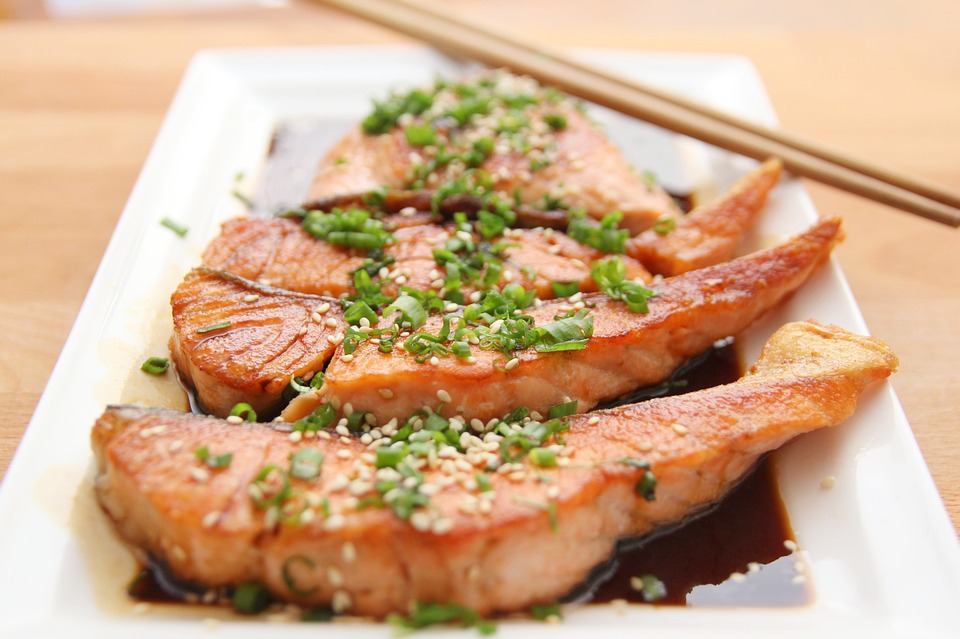
Recommended sources of fat: butter (avoid margarine), salmon, coconut oil, nuts, olive oil, avocado
Fat might not be the first thing that comes to mind when eating healthy. However, there are HEALTHY fats that are key to a swimmer’s performance in the pool. Healthy fats have omega 3s and 6s. While damaged fats are what’s found in fast food, chips and cookies. Healthy fats help swimmers maintain focus and should be consumed in moderation.
Time to discuss some of the specifics. Adding extras like coconut oil and olive oil to some of your dishes is as easy as 1-2-3! The fats found in these have many health benefits like taking care of your heart and managing your blood sugar. While avocados are shown to lower cholesterol as well and assist with digestion.
Micronutrients:
Micronutrients are essential to healthy development. As the name says, these are best taken in small amounts but keep us happy and healthy. Consuming these foods daily will stop you from having any deficiencies.
Vitamin D

Recommended sources of vitamin D: tuna, milk, sunlight (20-25 min), Portobello mushrooms
The sun is the most obvious source of vitamin D. However, clouds can have other plans. There are only a few foods that are rich sources of this vitamin. Swimmers who practice indoors are more likely to have a deficiency.
Here is a short explanation of foods that give you this vitamin. Tuna is not only a good source of vitamin D. It also has niacin and Vitamin K, which stop blood clotting and build bones. Milk also helps the muscles move and lowers blood pressure. So having a glass or two can be good during those not-so-sunny times of the year!
Iron
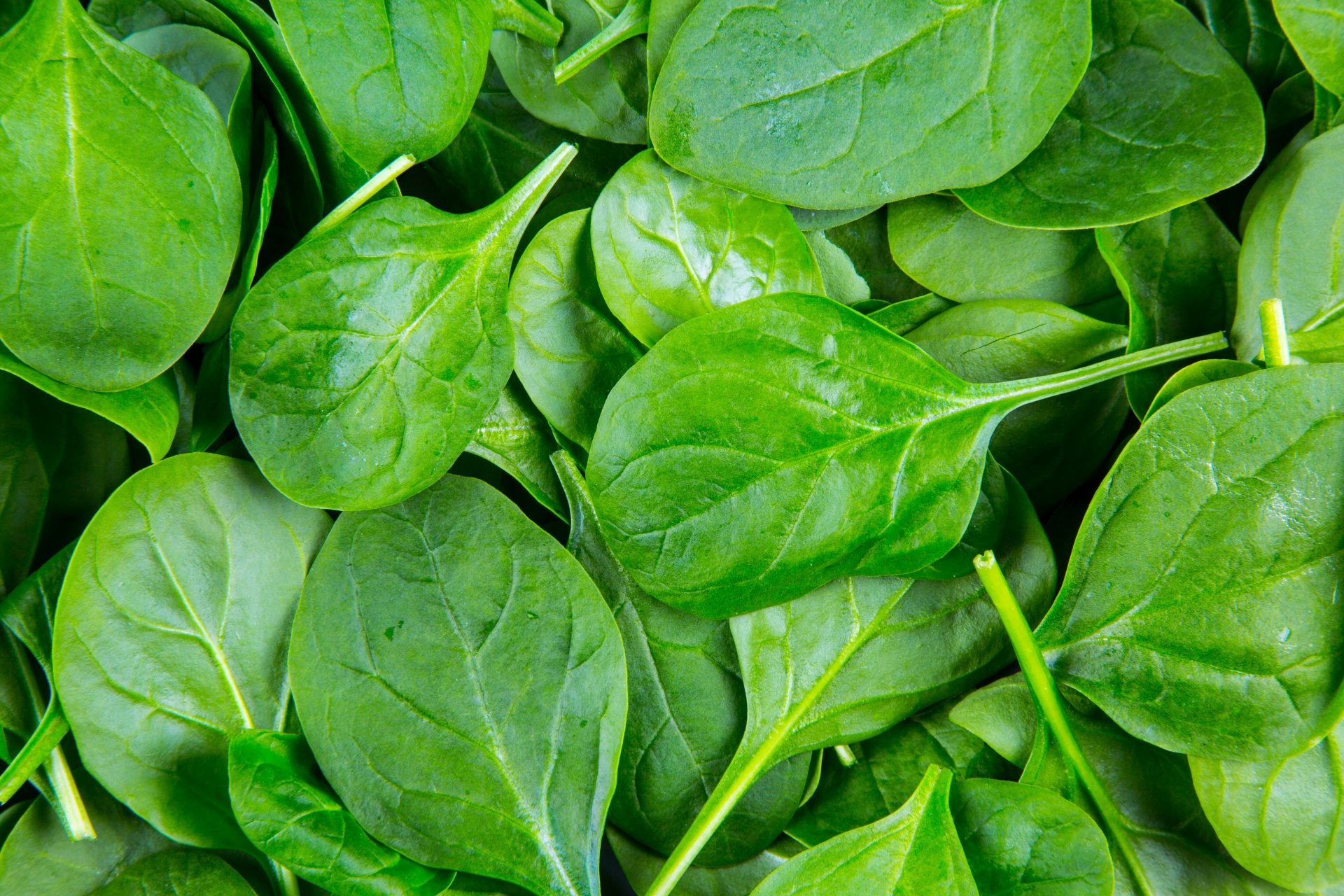
Recommended sources of iron: spinach, black beans, beef, oatmeal, enriched bread
Recommended sources of iron: spinach, black beans, beef, oatmeal, enriched bread
Iron is a big part of healthy oxygen-carrying red blood cells. Iron deficiency is an issue for women and vegetarians, which can lead to anemia. Almost 10% of the U.S. population is lacking in iron according to the CDC. This can make everyday tasks like walking up the stairs tiring for some people.
Never fear though. Eating foods like spinach can give you the help you need. Spinach is also low in calories, which makes it a weight-loss aid. Beef is red meat that helps retain iron and works even better than supplements. While oatmeal provides additional ingredients such as plant protein and fibre alongside iron. Add some fruit for some extra energy and flavour!
Calcium
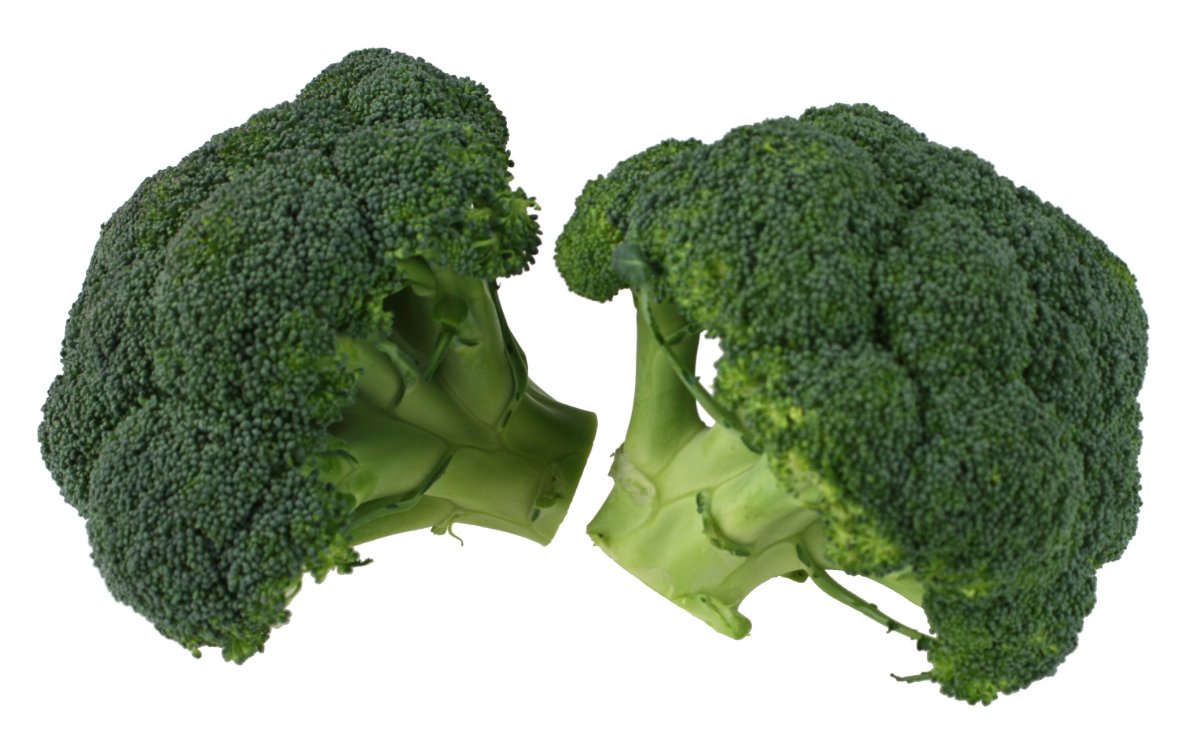
Recommended sources of calcium: milk, yogurt, broccoli, kale, tofu, cheese
Calcium is important, especially in the diet of young athletes. This is even more true for those without enough dairy in their diet. Peak bone formation is not completed until athletes are in their early 20s.
Let’s talk about some examples. Yogurt comes in a variety of kinds, but most contain probiotics and calcium. This not only improves your bones but supports the immune system’s functioning. Tofu is commonly eaten by vegetarians, but everyone can reap its benefits. Cooking it packs 8% of the daily calcium value. So eating one cup per day will do wonders for your health!

